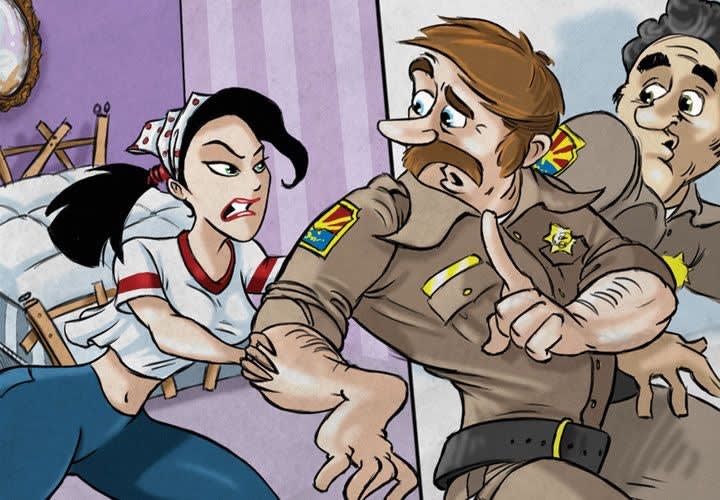My friend JW and I were kneeling on the bedroom floor of my new home helping his wife, Barb, put my new bedframe together. Well, mostly we were supervising and she was positioning the pieces of the "easy to assemble" furniture they'd kindly agreed to help me with.
As Barb put one of the bedrails up to the headboard we both exclaimed she had it upside down. Barb protested we were wrong but we both insisted that she had mistakenly chosen the wrong side up and it needed to be flipped over. We assembled the bed our way and proudly stood at the foot of the frame when we had finished.
Our pride was bruised somewhat as Barb showed us that, in fact, the slats didn't fit, the bedrails were out of position, and JW had talked his wife out of putting it together the correct way. How did she ever let that happen?
Well, poor Barb was a victim of something the authors of the book "The Invisible Gorilla" call "the illusion of confidence." It seems that the one who speaks out most forcibly or loudly in briefing, meetings, or on scene is often the one who actually knows the least or is the least competent. The problem is neither they nor we know just what fools they are. Worse still, we tend to believe the one who is most confident.
How many times have you had a situation where you know a subject is going to jail but you aren't quite sure which of the many statutes in your criminal code other than "contempt of cop" the miscreant is in violation of? One of your comrades confidently states, "The statute is 13-3701!" and another says, "I'm not sure, but I will look it up." Well, according to research it seems we are probably going to go with contestant number one unless we are sure ourselves. So, unless we mean to charge the fellow with unlawful use of food stamps (the real statute 13-3701), in this scenario we have been made the victims of "the illusion of confidence."
In this case, as with Barb's foolish mistake with the bed, no one is hurt. But law enforcement is a profession wrought with risks both legal and physical and the problem is that an error can prevent us from getting home safely or cost us our home in the long run. The greater issue is how do we know the foolish from the correct if the most confident are the wrong folks and not the truly knowledgeable ones?
We all meet criminals, or "con(fidence) men," who project confidence with malice, but for us the really scary part is that when we ourselves are confidently wrong we are completely oblivious to it. And the poor officer getting our confidently wrong advice is more convinced the more confidently our inaccuracy is presented: "the illusion of confidence."
So, what to do? First, try to make sure you are knowledgeable about a topic you are giving someone serious advice about. "When in doubt, check it out."
Looking something up instead of just going off the top of your head isn't a sign of ignorance at all. According to Christopher Chabris and Daniel Simons, the authors of "The Invisible Gorilla," fact checking may be a sign of above average competence and ability since the illusion affects both the recipient and the sender of the incorrect information.
So the next time you're sitting in a briefing and a fellow officer speaks out confidently about this or that, if the issue is a serious one you might check a reference. In the case of our bed construction, as JW and I drove off to finish some chores after Barb threw us out to finish the frame herself we chuckled that it was amazing she could have ever made such a mistake as...listening to us!
Dave Smith is the creator of "Buck Savage" and a retired law enforcement officer from Arizona. Currently, he is the lead instructor for Calibre Press' Street Survival seminar.













